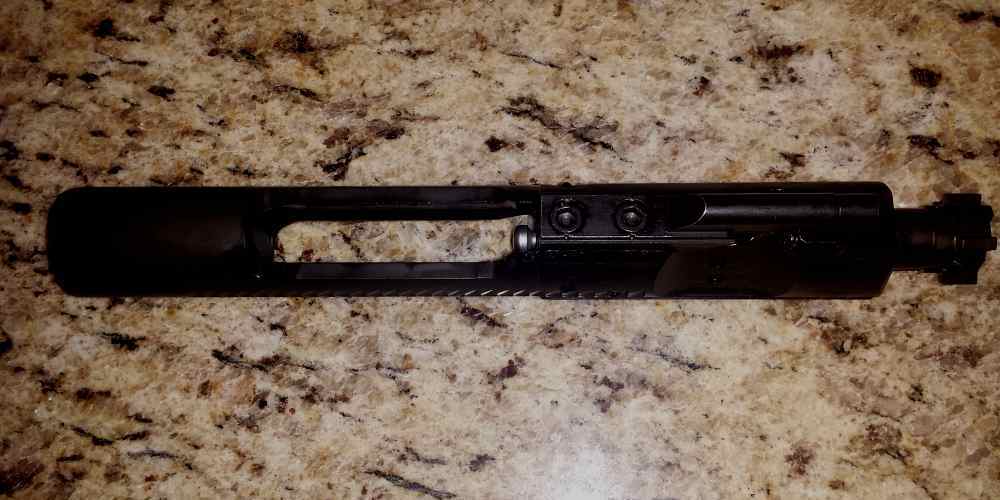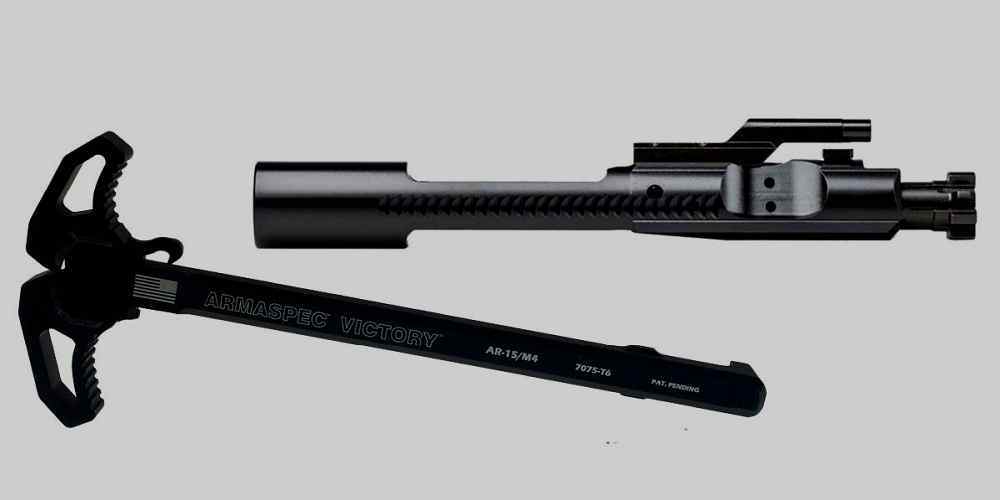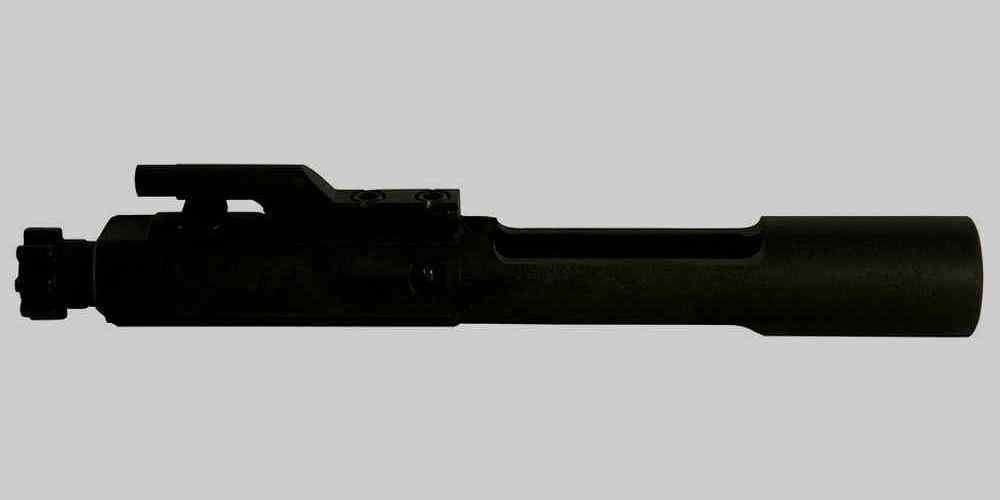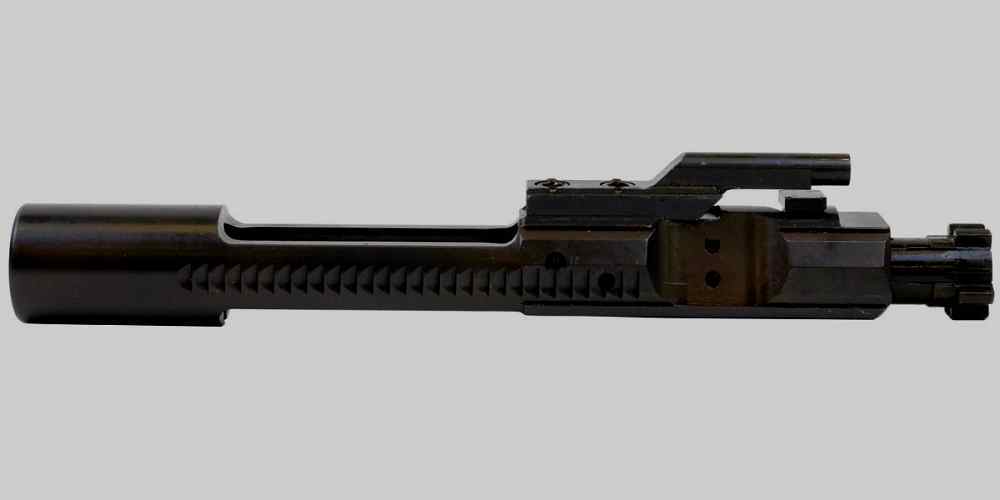“Ensuring the integrity of your AR15 BCG with precision and reliability.”
Benefits of Magnetic Particle Inspection for AR15 BCG
When it comes to ensuring the reliability and safety of your AR15, every component plays a crucial role. One of the most important parts of your AR15 is the bolt carrier group (BCG), which is responsible for cycling the firearm and chambering rounds. To ensure that your BCG is free from defects and cracks that could compromise its performance, it is essential to have it inspected using magnetic particle inspection (MPI).
MPI is a non-destructive testing method that is commonly used in the firearms industry to detect surface and subsurface flaws in ferromagnetic materials. By applying a magnetic field to the part being inspected and then dusting it with magnetic particles, any defects or cracks in the material will become visible under ultraviolet light. This allows for a thorough examination of the part without causing any damage to it.
One of the key benefits of MPI for your AR15 BCG is its ability to detect defects that may not be visible to the naked eye. Even small cracks or imperfections in the material can lead to catastrophic failure when the BCG is under stress. By using MPI, you can identify these flaws early on and take the necessary steps to address them before they become a safety hazard.
Another advantage of MPI is its high level of sensitivity. This testing method can detect flaws that are as small as a few microns in size, ensuring that even the tiniest imperfections are not overlooked. This level of precision is crucial when it comes to ensuring the reliability and longevity of your AR15 BCG.
In addition to its sensitivity, MPI is also a highly reliable testing method. Unlike visual inspections or other testing techniques, MPI provides clear and definitive results that are not subject to interpretation. This means that you can have confidence in the accuracy of the inspection and trust that any flaws detected are genuine.
Furthermore, MPI is a cost-effective testing method that can save you time and money in the long run. By identifying defects early on, you can prevent costly repairs or replacements down the line. Additionally, regular MPI inspections can help extend the lifespan of your AR15 BCG and ensure that it continues to perform at its best for years to come.
Overall, magnetic particle inspection is a critical tool for ensuring the safety and reliability of your AR15 BCG. By detecting flaws early on and providing accurate results, MPI can help you avoid potential disasters and keep your firearm in top condition. So, if you want to ensure the longevity and performance of your AR15, make sure to have your BCG inspected using MPI on a regular basis. Your safety and the performance of your firearm depend on it.
Importance of MPI in Ensuring BCG Reliability
When it comes to the reliability and performance of your AR15, the bolt carrier group (BCG) is a critical component that must be in top condition. One method that is commonly used to ensure the quality of BCGs is Magnetic Particle Inspection (MPI). This non-destructive testing technique is essential for detecting any potential defects or flaws in the BCG that could compromise its functionality.

MPI works by magnetizing the BCG and then applying a magnetic field to it. Any discontinuities or defects in the material will cause magnetic particles to gather at the site of the flaw, making it visible to the inspector. This allows for a thorough examination of the BCG to ensure that it meets the necessary quality standards.
One of the main reasons why MPI is so important for your AR15 BCG is because it can help prevent catastrophic failures. If a BCG has undetected defects, it could potentially fail during use, leading to serious injury or damage to the firearm. By using MPI to inspect the BCG, you can identify any potential issues before they become a problem, ensuring that your AR15 is safe to use.
In addition to safety concerns, MPI is also important for ensuring the reliability of your AR15. A BCG that has defects or flaws is more likely to malfunction, leading to issues such as failure to extract or eject, which can impact the overall performance of the firearm. By using MPI to inspect the BCG, you can catch any potential problems early on and address them before they affect the reliability of your AR15.
Furthermore, MPI is essential for maintaining the longevity of your AR15 BCG. By detecting and addressing any defects or flaws early on, you can prevent them from worsening over time and potentially causing the BCG to fail prematurely. This can help extend the lifespan of your BCG and ensure that it continues to function properly for years to come.
Overall, MPI is a crucial tool for ensuring the quality, safety, reliability, and longevity of your AR15 BCG. By using this non-destructive testing technique to inspect your BCG, you can identify any potential defects or flaws that could compromise its performance and address them before they become a problem. This can help keep your AR15 in top condition and ensure that it continues to function reliably for years to come. So, next time you’re inspecting your AR15, make sure to prioritize MPI to ensure the quality and performance of your BCG.
How MPI Detects Flaws in BCG Components
Magnetic Particle Inspection (MPI) is a non-destructive testing method used to detect surface and near-surface flaws in ferromagnetic materials. This technique is commonly used in the aerospace, automotive, and firearms industries to ensure the integrity of critical components. When it comes to your AR15 Bolt Carrier Group (BCG), MPI is an essential tool for identifying potential defects that could compromise the performance and safety of your firearm.
The BCG is one of the most important components of an AR15 rifle, responsible for cycling rounds, extracting spent casings, and loading new cartridges into the chamber. As such, it is crucial that the BCG is free from defects that could lead to malfunctions or failures. MPI is a highly effective method for detecting flaws such as cracks, inclusions, and other defects that may not be visible to the naked eye.
So how does MPI work? In simple terms, MPI involves magnetizing the component being inspected and applying a magnetic particle solution to the surface. Any defects in the material will disrupt the magnetic field, causing the magnetic particles to gather at the flaw and form a visible indication. By carefully examining these indications, inspectors can determine the size, shape, and location of any defects present in the material.
One of the key advantages of MPI is its sensitivity to surface-breaking defects. Unlike other testing methods that may only detect flaws at a certain depth, MPI can identify defects that are located just below the surface of the material. This makes it an ideal technique for inspecting components like the BCG, which are subject to high levels of stress and wear during operation.
In addition to its sensitivity, MPI is also a relatively quick and cost-effective testing method. The process can be completed in a matter of minutes, making it ideal for high-volume production environments where efficiency is key. Furthermore, MPI does not require the use of hazardous chemicals or radiation, making it a safe and environmentally friendly testing option.
When it comes to your AR15 BCG, MPI can help ensure that your firearm is safe, reliable, and ready for action. By detecting and identifying potential flaws in the material, MPI can prevent catastrophic failures and malfunctions that could put you and others at risk. Whether you are a competitive shooter, a law enforcement officer, or a recreational gun owner, investing in MPI testing for your BCG is a smart decision that can give you peace of mind.
In conclusion, Magnetic Particle Inspection is a critical tool for detecting flaws in AR15 BCG components. By using this non-destructive testing method, you can ensure that your firearm is in optimal condition and ready for use. Whether you are a seasoned shooter or a novice gun owner, MPI testing is an essential step in maintaining the safety and performance of your AR15. So don’t wait until it’s too late – schedule an MPI inspection for your BCG today and keep your firearm in top shape.
Comparing MPI to Other Inspection Methods for AR15 BCG
When it comes to ensuring the reliability and safety of your AR15, one of the most critical components to inspect is the bolt carrier group (BCG). The BCG is responsible for cycling rounds, extracting spent casings, and loading new rounds into the chamber. Any defects or weaknesses in the BCG can lead to malfunctions, misfires, or even catastrophic failures. That’s why it’s essential to use the right inspection methods to detect any potential issues before they become a problem.
One of the most effective inspection methods for AR15 BCGs is magnetic particle inspection (MPI). MPI is a non-destructive testing method that uses magnetic fields and magnetic particles to detect surface and near-surface flaws in ferromagnetic materials. This makes it an ideal technique for inspecting the steel components of an AR15 BCG, such as the bolt, bolt carrier, and cam pin.
Compared to other inspection methods, such as visual inspection or dye penetrant testing, MPI offers several advantages. Visual inspection can only detect defects that are visible to the naked eye, while dye penetrant testing can only detect surface defects. In contrast, MPI can detect both surface and near-surface defects, making it a more comprehensive inspection method.
Another advantage of MPI is its sensitivity to small defects. Even tiny cracks or flaws that are not visible to the naked eye can be detected using MPI. This level of sensitivity is crucial for ensuring the safety and reliability of your AR15 BCG.
In addition to its sensitivity, MPI is also a fast and cost-effective inspection method. The process can be completed quickly, allowing you to inspect multiple BCGs in a short amount of time. This can be especially beneficial for manufacturers or gunsmiths who need to inspect a large number of BCGs on a regular basis.
Furthermore, MPI is a non-destructive testing method, meaning that it does not damage the BCG being inspected. This is important for ensuring that the BCG remains in good working condition after the inspection is complete. With MPI, you can have peace of mind knowing that your AR15 BCG has been thoroughly inspected without compromising its integrity.
Overall, magnetic particle inspection is a highly effective and reliable method for inspecting AR15 BCGs. Its sensitivity, speed, cost-effectiveness, and non-destructive nature make it a preferred choice for many gun owners, manufacturers, and gunsmiths. By using MPI to inspect your AR15 BCG, you can ensure that your rifle is safe, reliable, and ready for action.
Tips for Choosing a Reliable MPI Service Provider for Your BCG
When it comes to ensuring the reliability and safety of your AR15 Bolt Carrier Group (BCG), one of the most important steps you can take is to have it inspected using Magnetic Particle Inspection (MPI). This non-destructive testing method is crucial for detecting surface and subsurface defects in your BCG that could compromise its performance and potentially lead to catastrophic failure.
MPI works by magnetizing the BCG and then applying a magnetic particle solution to the surface. Any defects in the material will disrupt the magnetic field, causing the particles to gather at the defect site and create a visible indication. This allows inspectors to easily identify cracks, inclusions, and other imperfections that may not be visible to the naked eye.
Choosing a reliable MPI service provider for your BCG is essential to ensure that the inspection is carried out accurately and effectively. Here are some tips to help you select the right provider for your needs.
First and foremost, look for a service provider that specializes in MPI for firearms components. While MPI is commonly used in a variety of industries, including aerospace and automotive, not all providers have experience with firearms. Choosing a provider with specific expertise in inspecting BCGs will ensure that they are familiar with the unique characteristics and potential defects of these components.
Additionally, consider the provider’s reputation and track record. Look for reviews and testimonials from other firearm owners who have used their services. A provider with a history of satisfied customers and a strong reputation for accuracy and reliability is more likely to deliver high-quality results.
It’s also important to inquire about the equipment and techniques used by the service provider. Make sure they use state-of-the-art MPI equipment and follow industry best practices for inspecting BCGs. This includes properly calibrating the equipment, using the correct magnetic particle solution, and adhering to established inspection procedures.
Furthermore, consider the provider’s turnaround time and pricing. While cost should not be the sole determining factor, it’s important to find a provider that offers competitive pricing without sacrificing quality. Additionally, inquire about their turnaround time for inspections, as you’ll want to minimize downtime for your firearm.
When contacting potential service providers, don’t hesitate to ask questions about their experience, qualifications, and processes. A reputable provider will be happy to provide this information and address any concerns you may have. Additionally, consider requesting a sample inspection or demonstration to see their work firsthand.
In conclusion, Magnetic Particle Inspection is a critical step in ensuring the safety and reliability of your AR15 BCG. By choosing a reliable MPI service provider with expertise in firearms components, a strong reputation, and state-of-the-art equipment, you can rest assured that your BCG is thoroughly inspected for defects. Don’t overlook the importance of MPI when it comes to maintaining the performance and longevity of your firearm.







